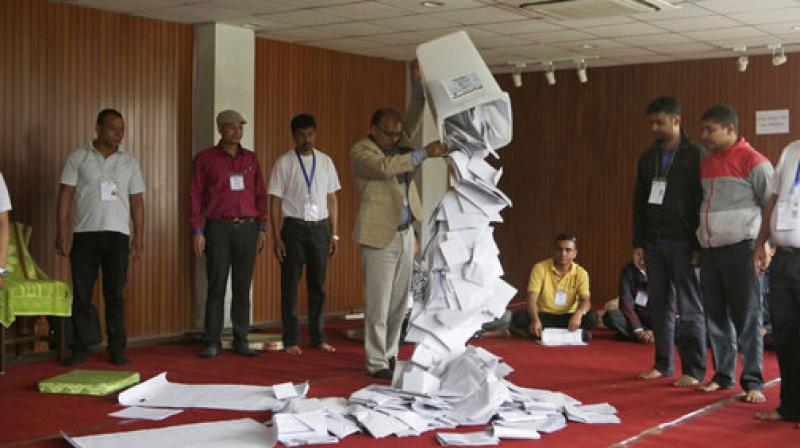Major Madhesis' alliance set for fresh protest in Nepal
The protest programme includes organising torch rallies in 22 districts of southern Nepal, the alliance said on friday.

Kathmandu: A newly-formed alliance of seven Madhes-based political parties in Nepal was set for a fresh round of agitation to disrupt the second phase of local level polls slated for June 14 in the Madhesi-dominated Terai region.
Rastriya Janata Party Nepal (RJPN) will launch a series of protests from later today aimed at obstructing the local polls held in the country in two decades, including call for strikes on June 2 and 3, the days set by the Election Commission to file nominations for the second phase of the local polls.
The protest programme includes organising torch rallies in 22 districts of southern Nepal, the alliance said on friday. The alliance said cases registered against Madhesi cadres had not been withdrawn and the increase in the number of new local units in southern plains was not enough. They also pointed out that thousands of eligible voters in the Terai region were left out.
The boycott of the polls has made fate of the second- phase of local polls in 483 units in four provinces uncertain. However, a splinter group of Madhes-based Federal Socialist Party led by Upendra Yadav and another major Madhes-based party Madhesi Peoples Rights Forum Democratic led by Bijaya Gachhadar will participate in the local polls.
The RJPN has been pressing for an amendment to the Nepal's Constitution prior to June 14 elections to address their demands. Meanwhile, the Madhes-centric parties have welcomed the government's decision to upgrade two sub-metropolitan cities located in Terai to metropolitan cities.
Birgunj sub-metropolitan city and Biratnagar sub- metropolitan city have been upgraded to metropolitan cities, according to 'Republica', an English daily.
The first phase of the local polls was held on May 14 with a 71 per cent voter turnout. Local-level elections could not be held in the country after 1997 largely as a result of the decade-long Maoist insurgency that claimed more than 16,000 lives in Nepal. The elections should be held in every five years but due to the political instability, they were halted since May 1997.
Local bodies remained ignored during the long transitional period even after the signing of a peace deal between the government and the Maoists in November 2006. Madhes-centric parties have opposed the elections until the new Constitution is amended to accommodate their views: more representation in the Parliament and redrawing of provincial boundaries.
The Nepal government has tabled a new Constitution amendment bill in the Parliament to address the demands of the agitating Madhesis. Madhesis, mostly of Indian-origin, launched a prolonged agitation between September 2015 and February last year against the implementation of the new Constitution which they
felt marginalised the Terai community.

